
Harry Orme (May 1826-9 June 1864) was a boxer from the bare-knuckle fighting era who was a candidate for heavyweight champion of England in the mid 19th century.

Harry Orme (May 1826-9 June 1864) was a boxer from the bare-knuckle fighting era who was a candidate for heavyweight champion of England in the mid 19th century.
Harry Orme was born near Bow near the East End of London in May 1826. [1]
Amongst other bouts, Orme fought and beat Nat Langham on the 6 May 1851, this being Langham's only career loss. Orme fought a championship bout against Harry Broome on 18 April 1853.
Orme kept the pub Jane Shore in Shoreditch for many years until his death on 6 June 1864. [1]

Longman, also known as Pearson Longman, is a publishing company founded in London, England, in 1724 and is owned by Pearson PLC.

Edward Henry Greb was an American professional boxer. Nicknamed "The Pittsburgh Windmill", he is widely regarded by many boxing historians as one of the best pound for pound boxers of all time.

Harry Wills was a heavyweight boxer who held the World Colored Heavyweight Championship three times. Many boxing historians consider Wills the most egregious victim of the "color line" drawn by white heavyweight champions. Wills fought for over twenty years (1911–1932), and was ranked as the number one challenger for the throne, but was denied the opportunity to fight for the title. Of all the black contenders between the heavyweight championship reigns of Jack Johnson and Joe Louis, Wills came closest to securing a title shot. BoxRec ranks him among 10 best heavyweights in the world from 1913 to 1924, and as No.1 heavyweight from 1915 to 1917.

James "Jem" Mace was an English boxing champion, primarily during the bare-knuckle era. He was born at Beeston, Norfolk. Although nicknamed "The Gypsy", he denied Romani ethnicity in his autobiography. Fighting in England, at the height of his career between 1860 and 1866, he won the English Welterweight, Heavyweight, and Middleweight Championships and was considered one of the most scientific boxers of the era. Most impressively, he held the World Heavyweight Championship from 1870 to 1871 while fighting in the United States.

William Perry, known as "The Tipton Slasher" after his native town of Tipton, was a British heavyweight prize fighter of the 19th century and claimed the championship of England, with some dispute, for two periods between 1850 and 1857. His fighting career began in London in 1835 and after fighting a number of highly rated championship contenders, he first claimed the English heavyweight championship by defeating Tom Paddock in twenty-seven rounds on 17 December 1850.
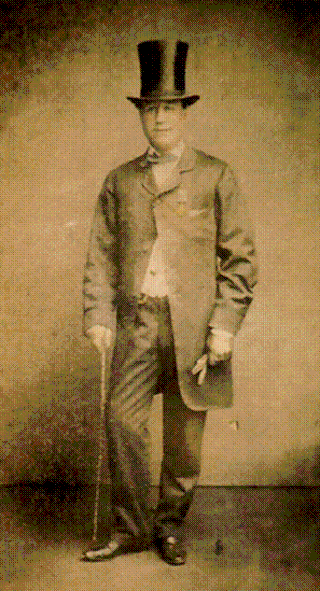
Tom Sayers was an English bare-knuckle prize fighter. There were no formal weight divisions at the time, and although Sayers was only five feet eight inches tall and never weighed much more than 150 pounds, he frequently fought much bigger men. In a career which lasted from 1849 until 1860, he lost only one of sixteen bouts. He was recognized as heavyweight champion of England between 1857, when he defeated William Perry and his retirement in 1860.

Nat Langham was an English middleweight bare-knuckle prize fighter. He had the distinction of being the only person ever to beat Thomas Sayers while defending the English middleweight championship. Langham first took the championship by defeating George Gutteridge on 23 November 1846. Langham was considered a scientific boxer, and known for using sharp, well-timed blows, particularly with his left, though he was right handed. He was a 1992 inductee into the International Boxing Hall of Fame and a mentor to the British boxers Tom King and Jem Mace.

Tom King also known as "The Fighting Sailor" was an English boxer who fought both bare-knuckle and with gloves. Strong, fast, and durable he was a skilled pugilist. One of his quirkier pre-fight rituals was to drink a tot of gin before every bout. He retired from the ring in 1863, as the Heavyweight Champion of England, following his defeat of the reigning champion Jem Mace and American contender John C. Heenan.

Robert Torrens was a Royal Marines officer, political economist, part-owner of the influential Globe newspaper, and a prolific writer. He also chaired the board of the London-based South Australian Colonisation Commission created by the South Australia Act 1834 to oversee the new colony of South Australia, before the colony went bankrupt and he was sacked in 1841. He was chiefly known for championing the cause for emigration to the new colony, and his name lives on in Adelaide's main river, the Torrens, the suburb of Torrensville and a few other places.

George Chip was a Lithuanian-American boxer who was the World Middleweight Champion from 1913 to 1914 in an era of great middleweights. Chip came to be known as a heavy puncher with an impressive knockout ratio. He was the father of Major general William C. Chip, USMC.

Harry Lewis, was an American boxer, generally credited with holding the Welterweight Championship of the World from April 1908 to March 1911. He defeated "Young Joseph", the reigning Welterweight Champion of England in London on June 27, 1910, but was not credited with the British Welterweight championship as the fight was sanctioned as a World, and not English title. Boxing writer Nat Fleischer rated Lewis the sixth-greatest welterweight of all time. He was inducted into the International Jewish Sports Hall of Fame in 2002, and into the International Boxing Hall of Fame in 2008.
The 58th (Rutlandshire) Regiment of Foot was a British Army line infantry regiment, raised in 1755. Under the Childers Reforms it amalgamated with the 48th (Northamptonshire) Regiment of Foot to form the Northamptonshire Regiment in 1881.
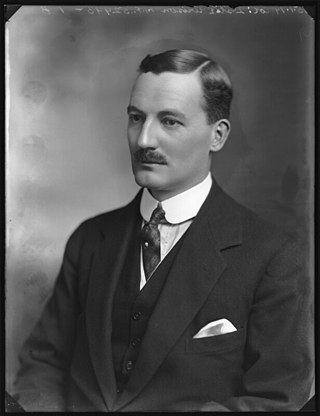
Sir Leslie Orme Wilson, was a Royal Marines officer, Conservative politician, and colonial governor. He served as Governor of Bombay from 1923 to 1926 and as Governor of Queensland from 1932 to 1946.
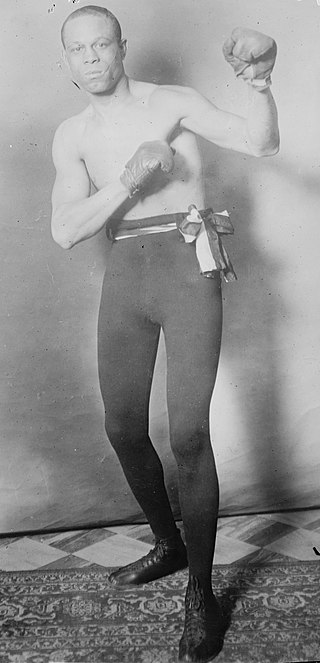
Charles Henry "Jack" Blackburn was an American boxer and boxing trainer. Fighting in the first half of his career as a lightweight and later a welterweight, he was known for an exceptional defense and fought many men above his weight class, including six bouts with the great Sam Langford. He fought Joe Gans three times in no-decision bouts, defeating him once according to newspaper accounts and made good showings against Harry Lewis, Philadelphia Jack O'Brien, and Harry Greb. He found most of his fame training 1937 World Heavyweight Champion Joe Louis, but also had a significant role in training 1926 Lightweight Champion Sammy Mandell. He helped to train World Bantamweight Champion Bud Taylor and World Light-Heavyweight Champion John Henry Lewis as well.
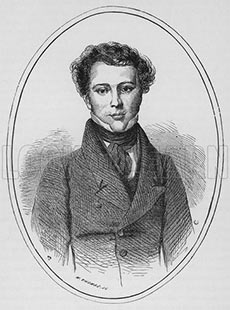
Young Dutch Sam was an English professional bare-knuckle boxer. He was considered a lightweight during his career, but his fighting weight would be comparable to a welterweight in modern parlance. He was inducted into the International Boxing Hall of Fame in 2002.
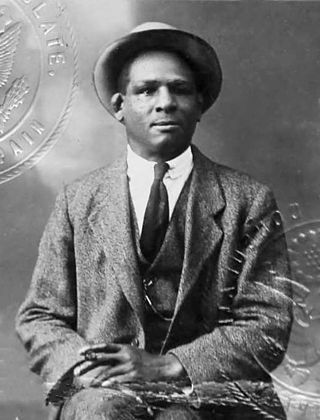
Aaron Lister BrownakaDixie Kid was an American boxer. He was a controversial contender for the World Welterweight Boxing Championship in April 1904.

Paddy Duffy was an American boxer of Irish descent. He was considered the first world welterweight champion of boxing's gloved era.

George Calvert Yount, later known by his Spanish name Don Jorge Concepción Yount, was a Californian ranchero, fur trapper, and entrepreneur. Born in North Carolina, he later emigrated to Alta California, where he became a Mexican citizen and acquired substantial property holdings in the Napa Valley, largely due to the influence of his friendship with General Mariano G. Vallejo. The city of Yountville, California is named for him.
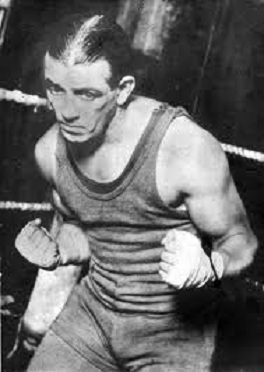
Harry Mason was a British boxer who was a British and European (EBU) champion in the lightweight division and British champion in the welterweight division.
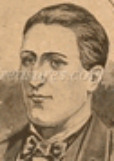
Henry Alfred Broome was a boxer from the bare-knuckle fighting era who became heavyweight champion of England in September, 1851 when he defeated fellow Englishman William Perry in Mildenhall, England. He lost the title in May, 1856 to Tom Paddock in Suffolk.